Фенцлов плутеј (Плутеус фензлии)
- Одељење: Басидиомицота (Басидиомицетес)
- Пододељење: Агарицомицотина (Агарицомицетес)
- Класа: Агарицомицетес (Агарицомицетес)
- Подкласа: Агарицомицетидае (Агарицомицетес)
- Редослед: Агарицалес (Агариц или Ламеллар)
- Породица: Плутеацеае (Плутеацеае)
- Род: Плутеус (Плутеус)
- Тип: Pluteus fenzlii (Pluteus Fenzl)
:
- Annularia fenzlii
- Chamaeota fenzlii
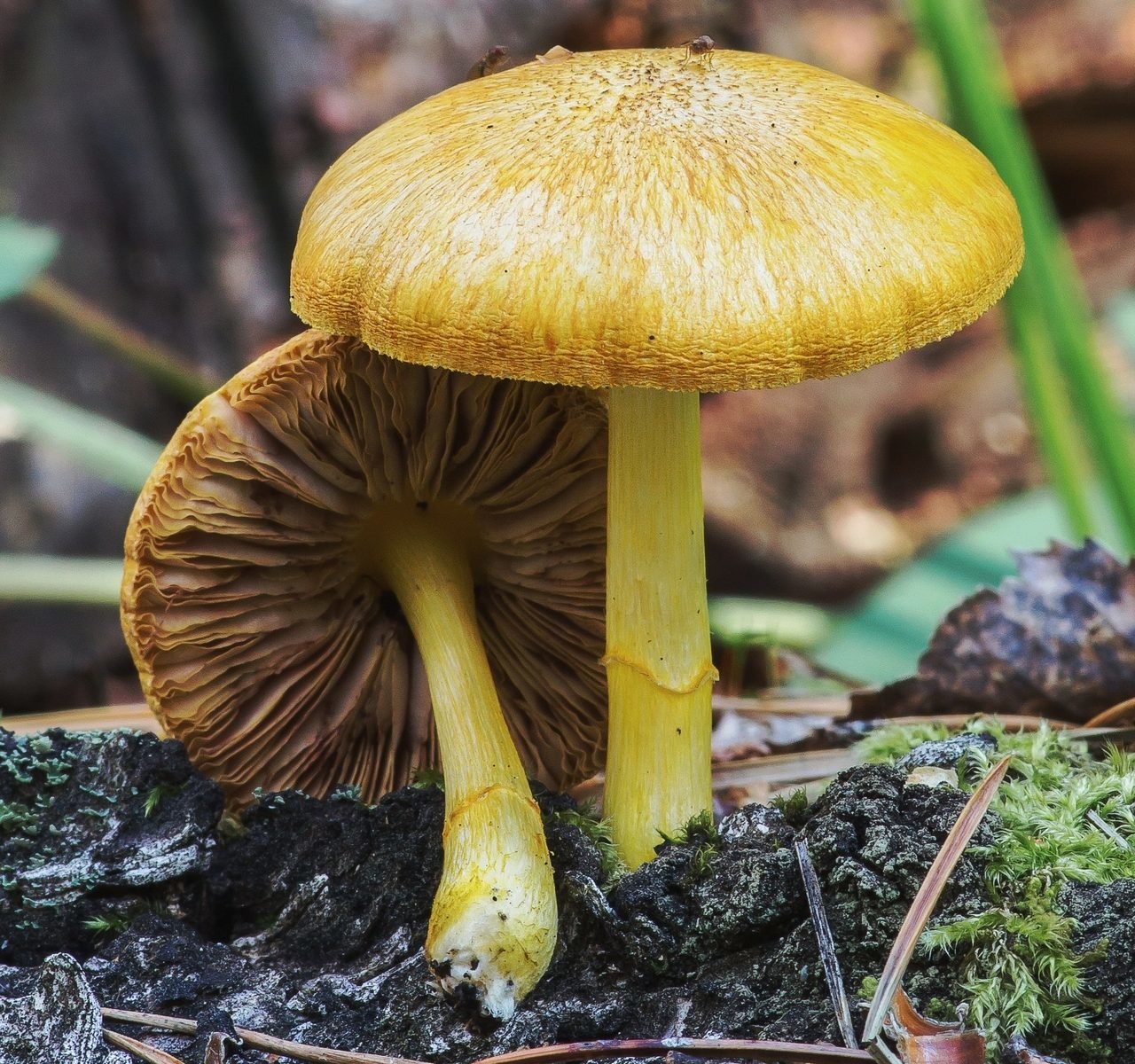
There are a lot of yellow-colored plutes, and their identification “by eye”, without a microscope, can cause some difficulties: the signs often intersect. Plyutey Fenzl is a happy exception. The ring on the leg favorably distinguishes it from the yellow and golden relatives. And even after the complete destruction of the ring in adult specimens, a trace remains, the so-called “annular zone”.
The mushroom is medium-sized, quite proportional.
глава: 2-4 centimeters, extremely rarely can grow up to 7 cm in diameter. When young, conical, obtusely conical, broadly conical, with turned up margin, later bell-shaped. In old specimens, it is convex or flattened, almost flat, usually with a wide tubercle in the center. The edge straightens, may crack. The surface of the cap is dry, not hygrophanous, radial fibrousness is traced. The cap is covered with thin yellowish or brownish scales (hairs), pressed along the edges and raised to the center of the cap. The color is yellow, bright yellow, golden yellow, orange-yellow, slightly browner with age.
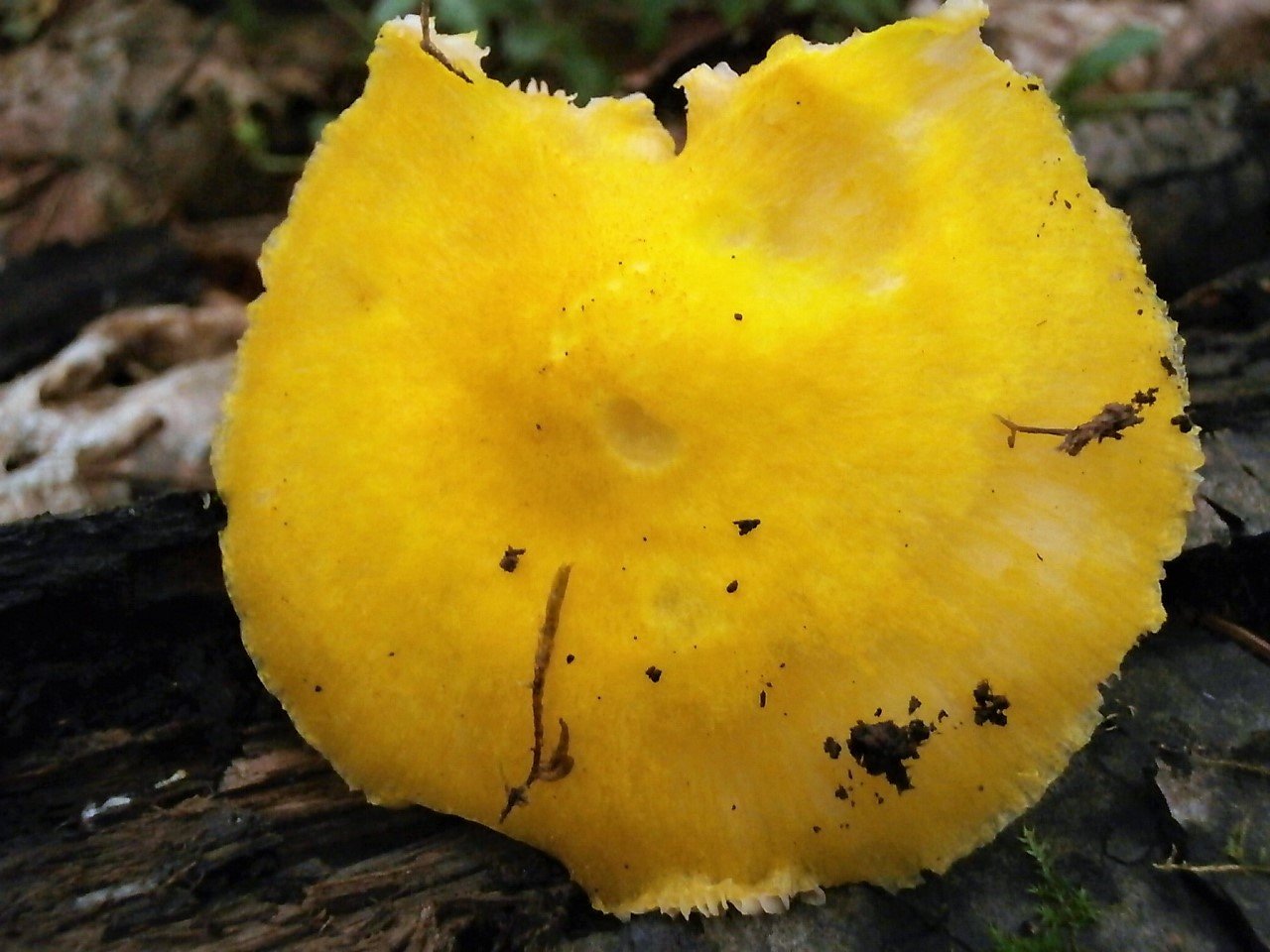
In adult specimens, in dry weather, a cracking effect may be observed on the hat:
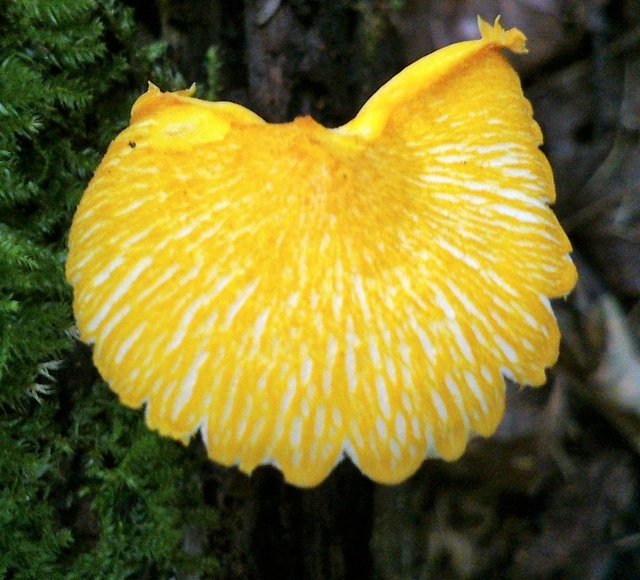
Плоче: loose, frequent, thin, with plates. White in very young specimens, with age light pink or grayish pink, pinkish, solid or with a yellowish, yellow edge, with age the edge may become discolored.
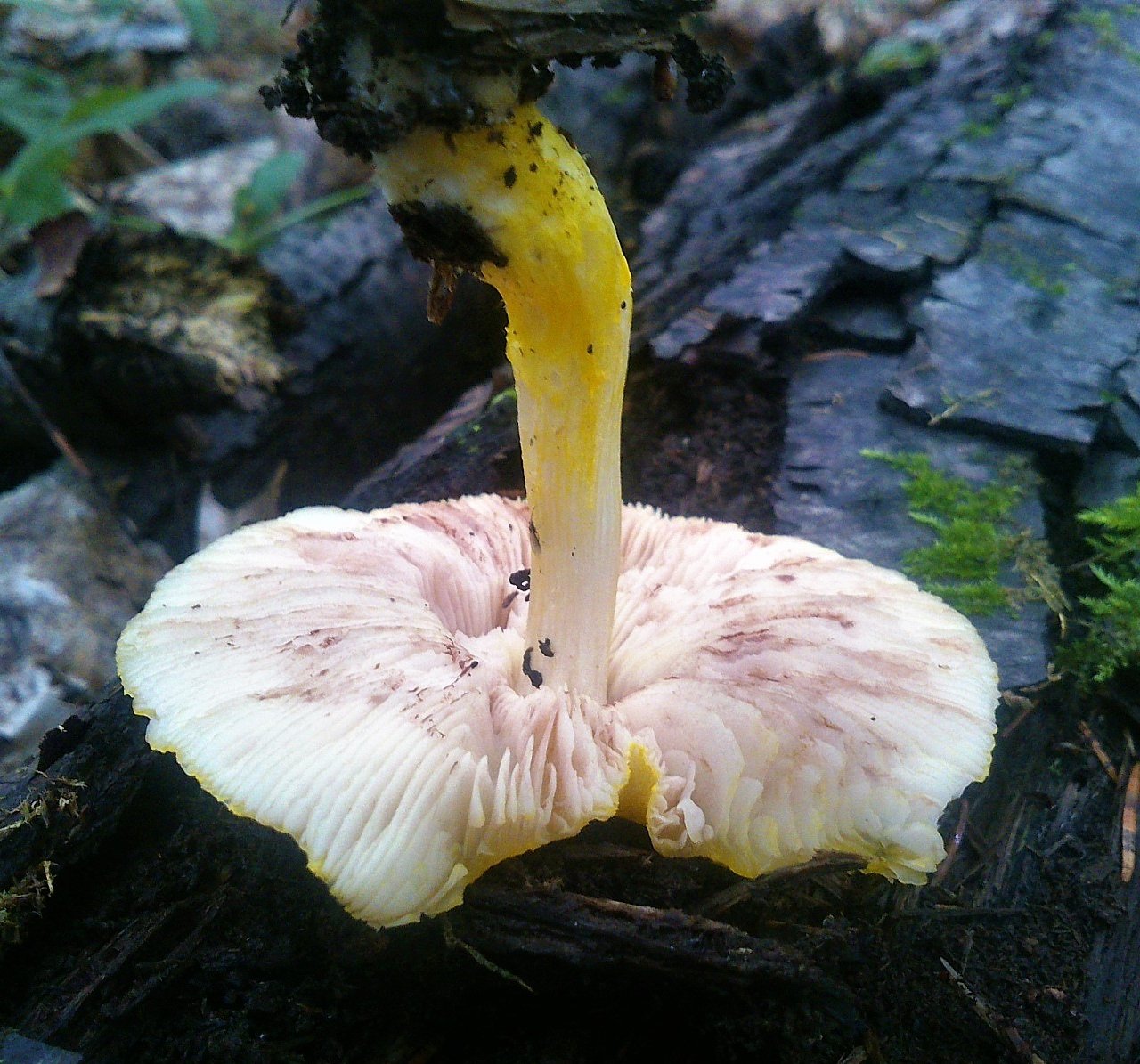
Нога: from 2 to 5 centimeters high, up to 1 cm in diameter (but more often about half a centimeter). Whole, not hollow. Generally central but may be slightly eccentric depending on growing conditions. Cylindrical, slightly thickened towards the base, but without a pronounced bulb. Above the ring – smooth, whitish, yellowish, pale yellow. Below the ring with pronounced longitudinal yellow, yellowish-brownish, brownish-yellow fibers. At the base of the leg, a white “felt” is visible – the mycelium.
ринг: thin, filmy, fibrous or felt. It is located approximately in the middle of the leg. Very short-lived, after the destruction of the ring there remains an “annular zone”, which is clearly distinguishable, since the stem above it is smooth and lighter. The color of the ring is whitish, yellowish-whitish.
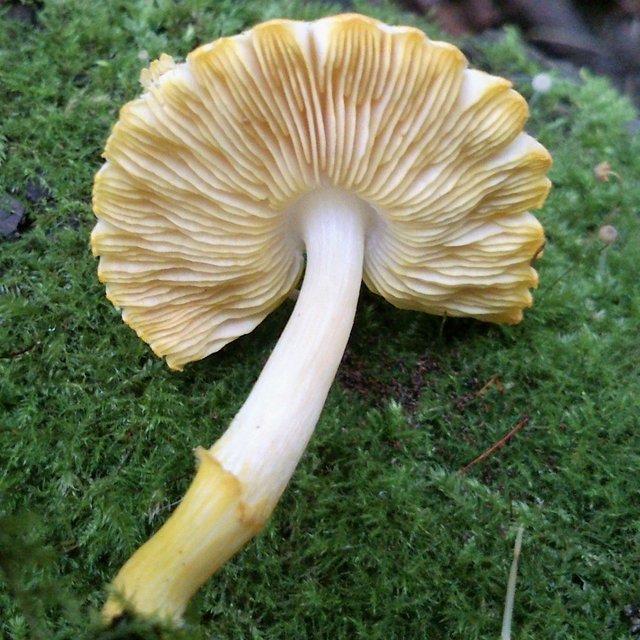
Каша: dense, white. Whitish-yellowish under the skin of the cap and at the base of the stem. Does not change color when damaged.
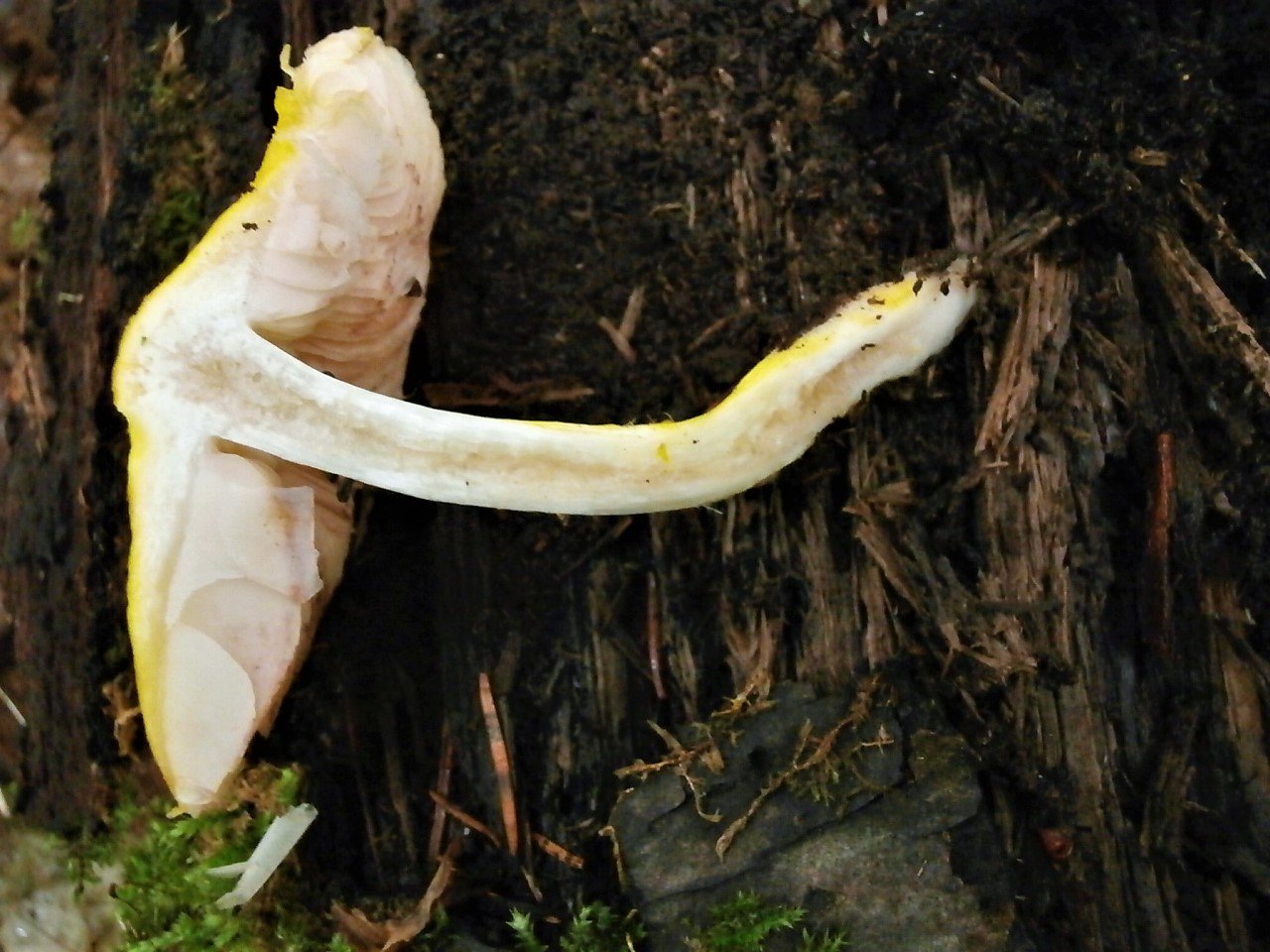
Мирис и укус: Нема посебног укуса или мириса.
спори прах: pink.
Спорови: 4,2–7,6 x 4,0–6,5 µm, broadly ellipsoid to almost round, smooth. Basidia 4-spore.
It lives on dead (rarely live) wood and bark of deciduous trees in broad-leaved and mixed forests. Most often on linden, maple and birch.
It bears fruit singly or in small groups from July to August (depending on the weather – until October). Recorded in Europe and North Asia, very rare. On the territory of the Federation, finds are indicated in the Irkutsk, Novosibirsk, Orenburg, Samara, Tyumen, Tomsk regions, Krasnodar and Krasnoyarsk territories. In many regions, the species is listed in the Red Book.
Непознат. Нема података о токсичности.
Lion-yellow whip (Pluteus leoninus): without a ring on the stem, in the center of the cap one can distinguish a reticulate brownish pattern, brownish, brown tones are more pronounced in the color.
Golden-colored whip (Pluteus chrysophaeus): without a ring, a hat without pronounced villi.
Photo: Andrey, Alexander.









